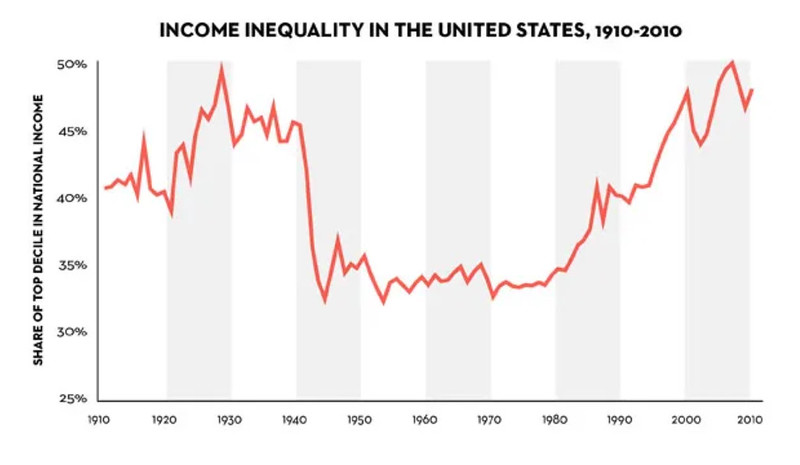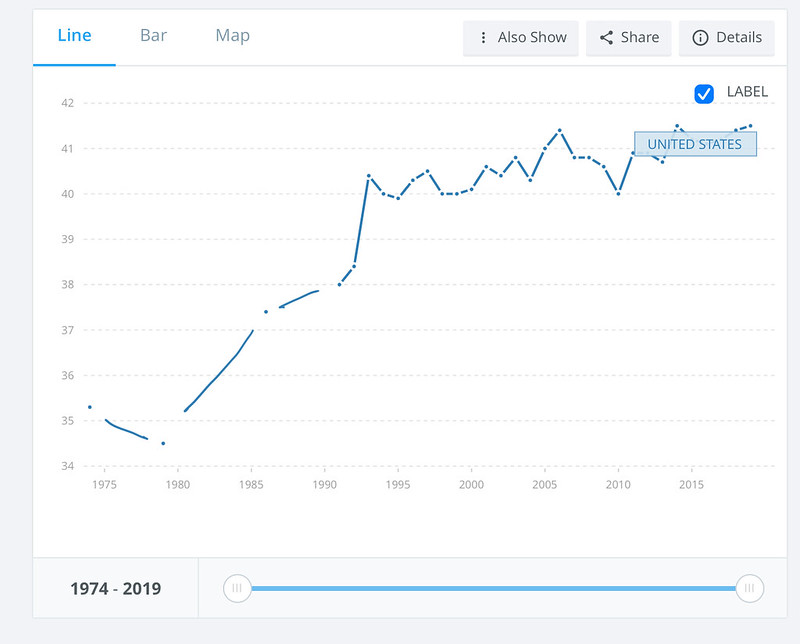Depends what argument you are making. If you are saying that there was a wealth gap in 1920’s US, then there indeed was. If you are saying it was more significant than 1979, then the evidence does not support that argument.
What is evident is that unfettered economic advantage creates a growing wealth gap. It happened in 1920 US and it led to wealth inequality and economic meltdown, there followed a period of what is broadly called Keynesianism in which wealth inequality was brought down, then in the 70’s when unfettered economic advantage was again brought in, wealth inequality grew again. And we had another economic meltdown.
The evidence of 1920’s USA does not contradict the evidence of 1979, it supports it




